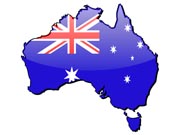New South Wales is Australia’s most racist state
 Melbourne, Sept. 29 : New South Wales has been identified as the most racist of Australia’s six states.
Melbourne, Sept. 29 : New South Wales has been identified as the most racist of Australia’s six states.
According to a report in The Australian, a lead researcher on the project, Kevin Dunn, has put this development down to Sydney being the focus of international migration to Australia.
He said people were asked which cultural/ethnic groups do not fit into Australian society, and found that New South Wales topped the list with 46 per cent of survey respondents saying some ethnic groups should not be in the country.
The Australian Capital Territory had the lowest such response with 28 per cent.
Human geography and urban studies Professor Dunn and his team from the University of Western Sydney, however, reveal that racism in Australia has waned over the years, but maintain that the figures are still high.
Dunn will unveil the state-by-state statistics on Friday at the 4Rs international conference - Rights, Reconciliation, Respect and Responsibility - at Sydney''s University of Technology.
Challenging Racism: The Anti-Racism Research Project has randomly surveyed about 12,500 people in different studies during the past eight years.
Prof Dunn attributes the results to people''s overarching views.
"It''s an indicator of a narrow view of what constitutes Australianism," he said.
Dunn said people also revealed who they singled out the most.
The overall figures surge to 65 per cent for people over 65 but drop to 31 per cent for those aged 18 to 34.
On average, about one in 10 people said it was not good for people of different cultures to marry and about the same number said not all races are equal.
He said NSW ranked highest in most categories but attributed that to Sydney being the country''s focus for immigration.
Prof Dunn and his team will release regional results within each state sometime early next year.
They will also recommend strategies to lower Australia''s level of racist views, which he said remain low by international standards. (ANI)